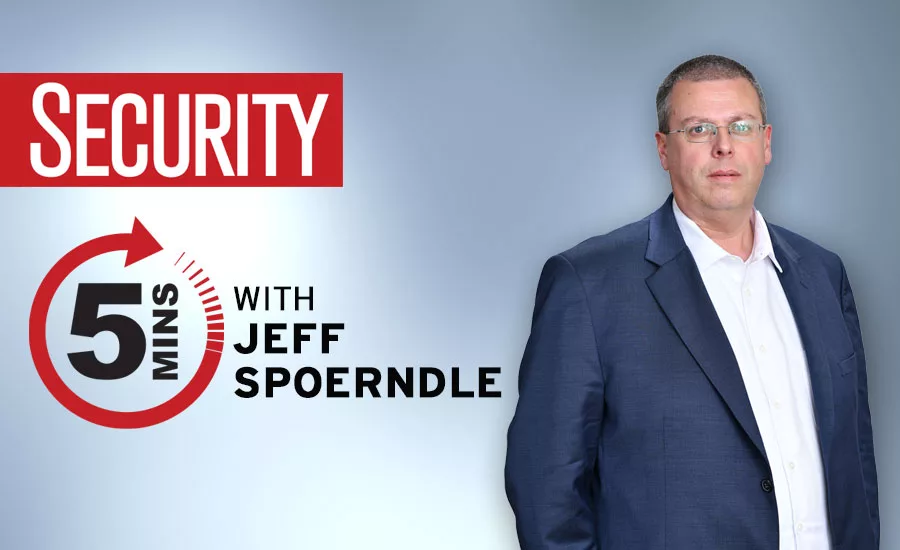5 minutes with Jeff Spoerndle - Planning for domestic violent extremism in large venues

Games, concerts, rallies and other large gatherings have been considered high-risk targets because of the many people they amass. As sports games, concerts and other large gatherings come back, the focus is on keeping fans, concertgoers and event attendees safe, not just from COVID-19, but from domestic terrorism.
Jeff Spoerndle, Vice President of BEST Crowd Management, who oversees thousands of event security professionals and has led efforts to ensure training is provided to employees on emergency response in a high-threat situation, discusses the potential threat of domestic violent extremism (DVE) at large events and critical safety considerations for venues.
Security: What is your background? Could you discuss your current role at BEST Crowd Management?
Spoerndle: I am the Vice President of BEST Crowd Management, a division of GardaWorld Security Services. I have been in the industry for 30 years and got my start as an usher at my hometown stadium during high school. Since then, I have coordinated the guest services and security programs for some of the nation’s most prominent events— including the NFL’s Super Bowl, NFC and AFC Championship Games, MLB’s World Series, American and National League Championship Series, NCAA’s Final Four, Republican and Democratic National Conventions, the NFL Draft, NBA All-Star Weekend, and the U.S. Golf Open. Through BEST Crowd Management, I oversee services for 125 sports venues and convention centers in the U.S.— ranging from the NFL to the MLB, NBA, NCAA, and NHL.
Security: We’ve seen an uptick in acts of DVE. As sports games, concerts and other large gatherings come back, what is the potential threat of DVE at these events?
Spoerndle: The Department of Homeland Security Secretary recently labeled DVE the most significant terrorism threat to Americans right now. It’s no surprise that federal authorities are deeply concerned about the possibility of domestic terror events this year in particular, as there has been an uptick in threats and occurrences since COVID-19 restrictions began lifting. Now that there is an increase in mass gatherings — including sports games, concerts and other large events — there is a greater focus on DVE and security measures to prevent any potential threats.
Security: What should venues take into consideration when planning and preparing for these threats?
Spoerndle: As venues reopen, it’s critical that all staff members — whether working directly in security or elsewhere around the venue— are trained on potential threats. Given that it’s been more than 15 months since some venues have been open, retraining staff is essential. Prior to COVID, most venues were prepared for countering terrorist measures between metal detection, bag checks, and having protocols in place for an active shooter situation. Most venues have a multi-layered approach to security to combat these threats. Situational awareness is critical. Venues should consider: What risk indicators might exist in your organization or community? Whether you’re talking about social media, conversations at home or work, or the voices and energy on the ground that day — what mechanisms are in place to monitor, assess and anticipate security threats? These are all good things to keep in mind, given the current landscape. Venues also should promote their security programs and educate guests. While some guests might see protective measures as an inconvenience, many have come to understand the importance of these measures and that they’re in place to save lives. We work with each of our clients to ensure we give them a tailored security approach by evaluating the needs of their unique venue and market.
Security: How should security personnel be trained to anticipate and prevent these threats?
Spoerndle: It’s essential to take a holistic approach to security, bringing intelligence, physical security services, crowd management services, and digital security together. As we continue to see more cases of violent domestic extremism, education and training are critical.
At GardaWorld, for instance, we train our employees on de-escalation strategies in these situations, and we work with our clients to assess their security, put protocols in place, and invest in the right technology, physical assets and security personnel. Training should focus on the following:
- Preparation is vital, as is being proactive rather than reactive. We train how to intervene sooner. Generally, aggressive incidents don’t happen without some preemptive behavior cues. The key is tackling the problem before it escalates.
- Training also has to be ongoing — it can’t just be one session at the beginning of the season.
- A mix of both virtual and on-site training is best, and testing staff is also essential, as it helps them retain the knowledge they learned during training.
- Consider cross-training because there may be a need for a specific team member on the machines one day but in the stands on another.
Security: How can visitor safety be prioritized and ease their stress and anxiety over domestic violent extremism threats?
Spoerndle: We’re constantly finding the balance between security and the overall guest experience. We want guests to come to the venues, so we need to make sure the experience is enjoyable. That doesn’t minimize the need to provide optimal security, however. Security measures are taken to protect and save lives, not to be an inconvenience. In addition to the venue itself, part of our job is to educate the public on this. Venues should promote their security programs to inform guests. The average guest doesn’t always realize how security measures are there to protect them, as providing a safe and secure environment is a top priority. Sporting venues are probably some of the safest spaces because of the security measures and processes in place, which isn’t something to overlook. Educating the guests can also help bring them into the security process. Security is a team effort, and guests can play a huge role in keeping the facility safe. Making sure guests know how to report misconduct and whom to report to is crucial. Today, many venues have anonymous texting systems in place to report things like inappropriate behavior or unattended bags. With guests catching these incidents early on at an event, security personnel can defuse the situation earlier.
Security: What should situational awareness for event personnel and attendees look like?
Spoerndle: Attendees should look out for any unusual behavior. One thing attendees hear all the time is that they should report randomly placed, unattended bags to the staff. Attendees should generally use common sense and treat the event like they would any other situation— be on the lookout for inebriation, verbal threats and yelling, and avoid dimly lit or isolated areas. Aggressive incidents don’t happen without some preemptive behavior cues, so really anything that feels like misconduct should be reported. We want to be proactive, as tackling an issue before it escalates is critical.
Security: How can the community, leaders, security personnel and law enforcement work together to minimize these threats?
Spoerndle: It takes an army of people to put on an event, so we need all stakeholders working together to evaluate risks and mitigate them. Venues are well-prepared for threats between metal detection, bag checks, and having protocols in place — but minimizing these threats is a combination of technology and manpower. We often work with local law enforcement, city officials and sometimes even lighting companies to assess and manage venue security and attendee safety. Every role is critical — from custodial staff, food workers and guests — in keeping the facility safe. These extra eyes and ears help see things that security personnel may not see as quickly. It’s everyone’s job to be as observant and alert as they can be. Security will always be a team effort.
Looking for a reprint of this article?
From high-res PDFs to custom plaques, order your copy today!






